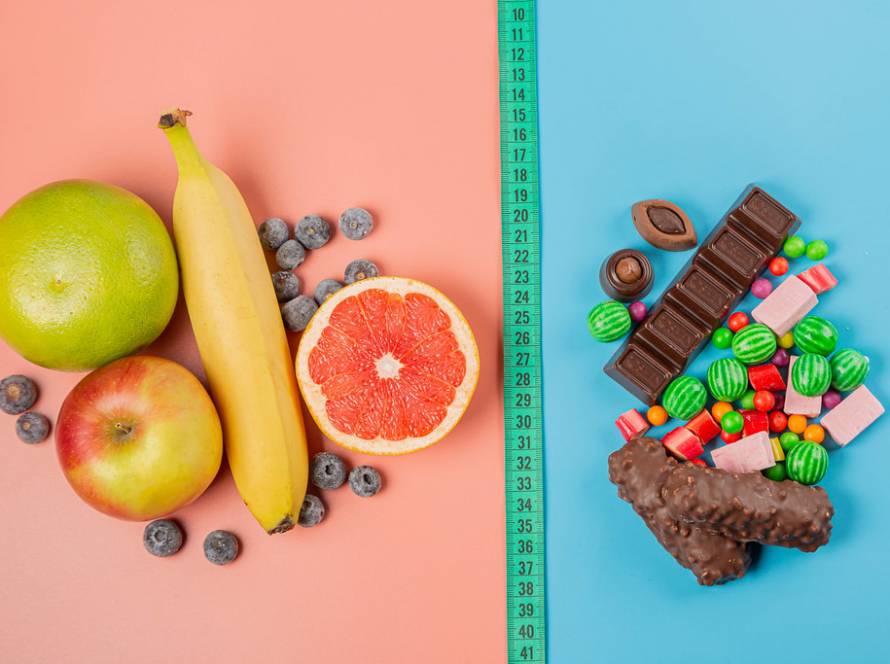Have you ever heard the phrase ‘You are what you eat’? This phrase suggests that to be fit and healthy, we must eat good food. In a literal sense, we all can agree that it’s true that ‘you are what you eat’. This is because nutrients from our foods provide the foundation of the structure, function, and wholeness of every little cell in our body, from the skin and hair to the muscles, bones, digestive and immune systems! We may not feel it, but we’re constantly repairing, healing and rebuilding our bodies.
Every cell in our body has a “shelf life”. For example, a stomach cell lives about a day or two, while a skin cell lives for about a month. Red blood cells live for about four months, while the skin cells live for about 14 days. So, every day, the body is busy making new cells to replace those that have died off. And how healthy those new cells are is determined by how well we eat. A diet filled with highly processed food that’s low in nutrients doesn’t give our body much to work with. But a clean, nutrient-rich, whole foods eating plan can help us build cells that work better and are less susceptible to premature ageing and disease.
Clean foods are minimally processed and as direct from nature as possible. They’re whole and free of additives, colourings, flavourings, sweeteners, and hormones. For example, foods with one-word ingredients, such as spinach, blueberries, almonds, salmon, and lentils. There’s also strong evidence that, as a rule, the closer the meal you eat is to nature, the fewer calories it will take for you to feel satisfied. What could be the reason for this? Processed foods often have low amounts of fiber and water: a high ratio of calories to nutrients, and a mix of tastes from added sugar, salt, and flavouring that overly stimulates the appetite centre in the hypothalamus(a region in the brain). Clean foods are the opposite; they contain lots of fiber and fluid, a high ratio of nutrients to calories, and are free of added flavours – all of which send signals of satisfaction to the brain before we consume too many calories.
BENEFITS OF EATING HEALTHY
- Eating healthy promotes longevity and lowers the ageing process
- It keeps the skin, teeth, and eyes healthy and in good shape
- Supports muscles and improves their integrity
- Boosts immunity and decreases the rate of infection and inflammation
- Strengthens bones by improving calcium absorption
- Lowers the risk of heart disease, type 2 diabetes, and some cancers, such as colon cancer.
- Supports healthy pregnancies and breastfeeding, improves safe delivery and lower mortality rate in pregnancies
- It helps the digestive system function properly, reducing the rate of constipation, bloating and gastritis
- Helps achieve and maintain a healthy weight
- controlling the blood sugar level
- Improving the cholesterol level in the body
- Reducing blood pressure
WHAT DOES A HEALTHY, BALANCED DIET LOOK LIKE?
A healthy and balanced meal is a meal that contains all the nutritional values in its proper proportions. This includes eating more plant-based and less processed meals. Always ensure to:
- Eat lots of fruits and vegetables:
This is one of the most critical diet habits. Vegetables and fruit are packed with nutrients (antioxidants, vitamins, minerals and fiber) and help maintain a healthy weight.
- Eat more proteinous foods:
Proteins help build and repair body tissues. They include legumes like beans, fish, meat, and eggs, and dairy products.
- Limit consuming highly processed meals:
Processed foods have been changed from their source and have many added ingredients and preservatives. This reduces their nutritional value and makes them unsafe for consumption. Natural food or less processed foods are always encouraged. This includes eating natural fruits such as fruit juices, smoothies, etc.
- Make water or any natural liquid your drink of choice:
Water supports health, aids digestion and promotes hydration without adding calories. Sugary beverages, including energy drinks, soft drinks and flavoured coffees, have lots of sugar and little nutritional value. Drinking empty calories without realising it is easy, leading to weight gain and sugar overload.
- Ensure regular exercise:
This helps the body relax, promotes blood circulation, slow ageing, and improves bone and muscle integrity. Regular exercise and Healthy feeding habits are paramount for longevity and immunity and lower the risk of certain diseases.
- Regular sleep pattern:
Sleep, just as a healthy diet, is crucial. Sleep helps the body to rest after prolonged activity, improves brain development in children and also helps cognitive performance in adults.
Does Diet Determine How Young Or Old We Look?
The answer can go both ways – yes and no. Yes because
Conclusion
Remember, you are what you eat. So, fuel your body with the right foods, and it will reward you for making healthy choices. Healthy food leads to a healthy body, which, in turn, increases the odds of a longer, younger and happier life.



